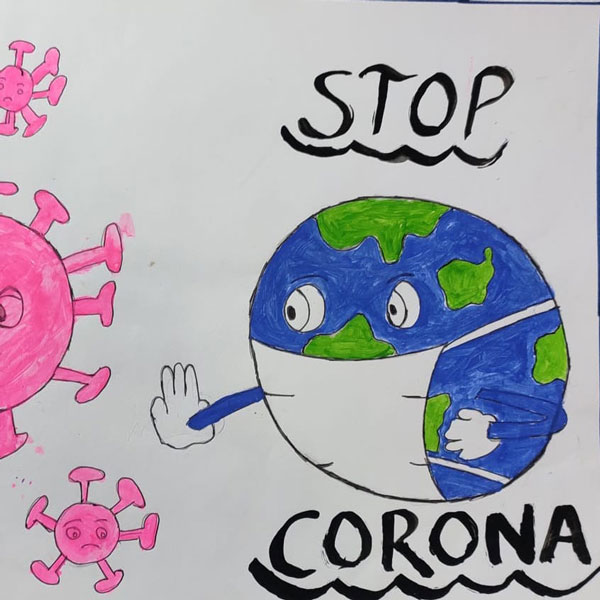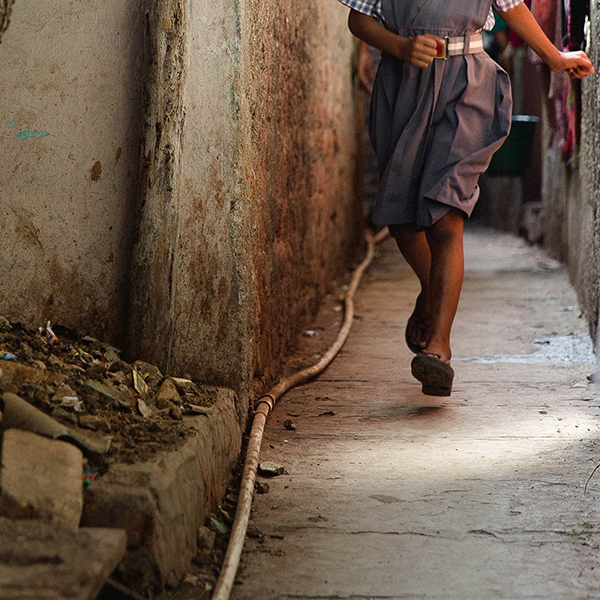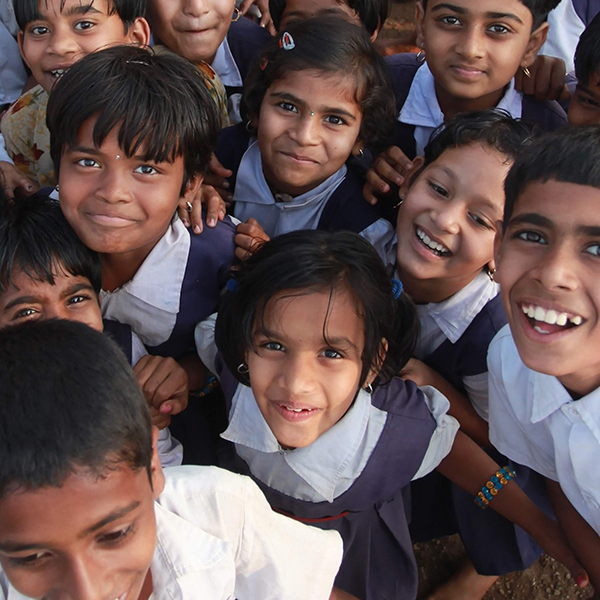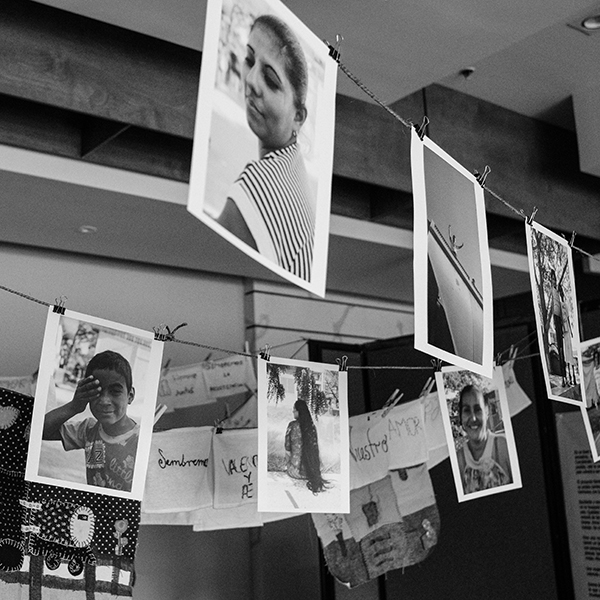Over the past year and a half, Global Fund for Children’s Asia team and local partners in the region have shifted their focus to the pandemic as part of their work preventing child trafficking. Two members of the team share how they support partners in India who are responding to increased threats to children, and how they have provided partners with home-based COVID-19 patient treatment training.
Increased risks for children
Two of GFC’s team members in India, Indrani Chakraborty and Rituu Nanda, work with GFC partners to address the root causes of child trafficking and labor in the country. A new root cause emerged in 2020: COVID-19. While the pandemic has closed borders and locked down schools and workplaces, bringing life to a standstill for most, it has also increased the risk of child trafficking.
“Communities have lost their livelihoods and become more vulnerable,” Rituu explained. “When traffickers come, the parents are more likely to send their children to work.”
Child marriages are also on the rise and may mask child trafficking, Indrani said. Desperate families struggling to provide food for their children sometimes fail to carefully vet the groom and his family. In these cases, she said, “It is difficult to say whether [the girls] have been trafficked or not.”
From the outset, GFC’s partners recognized COVID-19 as a threat to their efforts to protect children and swung into action. In addition to distributing hand sanitizer and face masks, Rituu said that one of the most helpful things partners did was identify community members whom they considered most at risk of trafficking. “They made a list of the most vulnerable people in the community and provided support to mitigate the situation they were in,” she said.
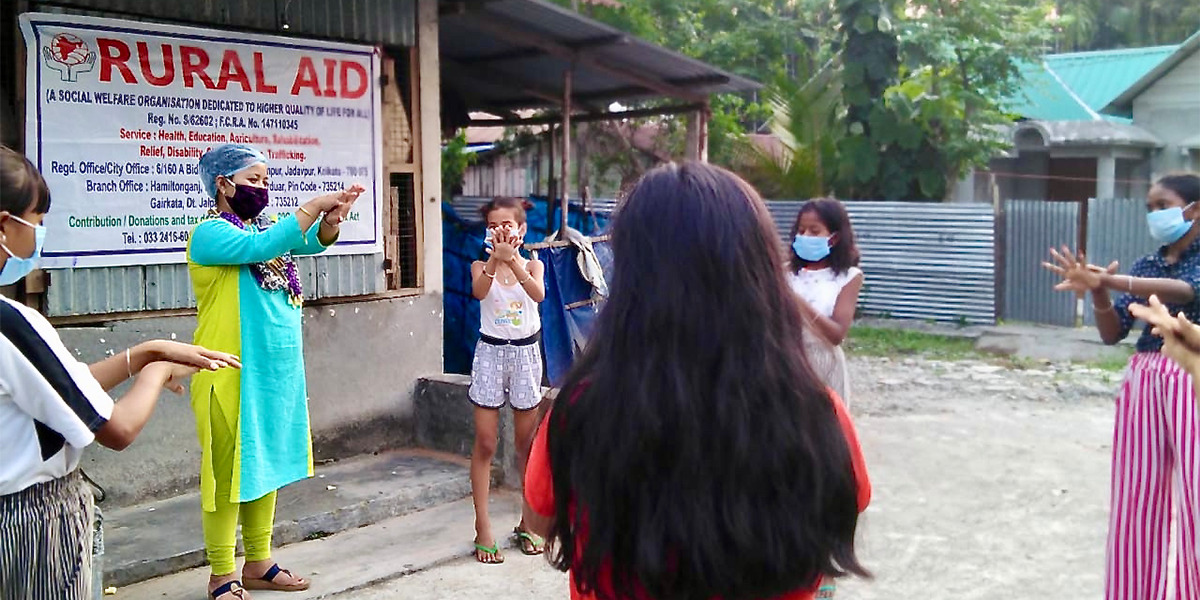
Meanwhile, GFC’s Asia team supported partners with weekly check-ins, emergency grants, and training on how to work virtually. In the process, Indrani, a Child Protection and Anti-Trafficking Specialist, said she also learned more about working online. “I wasn’t very tech savvy before the pandemic,” she said. “GFC supported me.”
Rituu, who joined GFC in March 2020 as a Monitoring, Evaluation, and Learning Specialist, said she was impressed with GFC’s pandemic response. “GFC did not take time, did not delay, and quickly raised funds and provided initial funding to the NGOs,” she said.
Caring for loved ones at home
Indrani and Rituu sought additional innovative, community-based approaches to respond to the pandemic as a root cause of child labor and trafficking. Rituu developed a strategy drawing on her background in public health. She researched how to develop community capacity in fighting COVID-19 by investigating successful community responses to the Ebola epidemic in West Africa.
“What turned the tide during the Ebola epidemic was when people realized institutions cannot do it alone,” she said. “They told the government, ‘Can you teach us how to take care of the sick in a scientific way?’”
India’s second wave of COVID-19 affected urban areas first. Rituu knew that if GFC acted quickly, it had an opportunity to help its partners in rural India prepare. She came across an NGO called the Delhi Solidarity Group training people to take care of COVID-19 patients at home.
According to the World Health Organization, most COVID-19 cases are mild or moderate. Since many hospitals in India were already strained beyond their maximum capacity, empowering individuals to treat mild and moderate cases at home would save lives and reserve hospital space for severe cases. The training, created in cooperation with medical doctors, gives families guidelines for protecting caregivers from infection, administering appropriate medicines and supplements, and patient diet. As part of the training, participants are also given access to a hotline where they can ask volunteer doctors their caregiving questions.
The Delhi Solidarity Group only offered the training in two of the four languages GFC’s partners in India speak, so two other organizations My Choices Foundation and Miracle Foundation helped translate the home-based care guidelines into the remaining two languages. Indrani hosted the trainings conducted in Bengali, while Rituu hosted the trainings in Hindi, Marathi, and English.
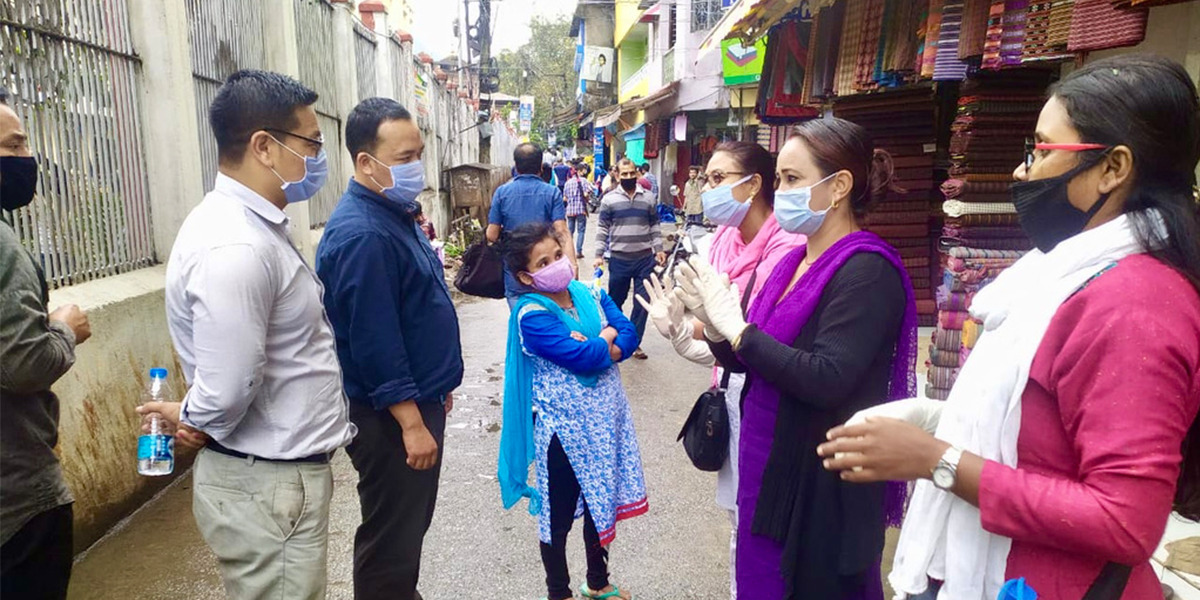
During the first round of sessions, roughly 245 staff members from nonprofit organizations, including GFC partners, received the training. Another 150 people completed training during the second round. Rituu and Indrani are hopeful that it will have an impact beyond the participants. One staff member reported training 20 community members right away.
Another GFC partner, Faith Foundation, worked with the Delhi Solidarity Group to compile a list of COVID-19 caregiving supplies. This included simple items like thermometers as well as more specialized items like pulse oximeters for measuring blood oxygen levels. GFC funded the COVID-19 caregiver kits for partners to distribute to their communities.
The program has already made a difference. After receiving the training, a caretaker for a children’s shelter had to respond to an outbreak. She felt confident taking care of those with mild symptoms herself, knowing doctors were only a call away through the Delhi Solidarity Group’s hotline. Only two of the 30 children and staff members who fell ill required hospitalization, and all of them have since recovered.
Rituu hopes all the organizations and communities participating in GFC’s COVID-19 home care training will share the confidence that caretaker felt, not just in tackling a COVID-19 outbreak, but also in responding to whatever challenges emerge in their communities in the future, whether it is child trafficking or climate change.
Header photo: A table displaying reusable masks. © Faith Foundation
Feature photo on previous page: A participant’s photo of a COVID-19 home care training session. © Mridula Kapil Bhrgava
